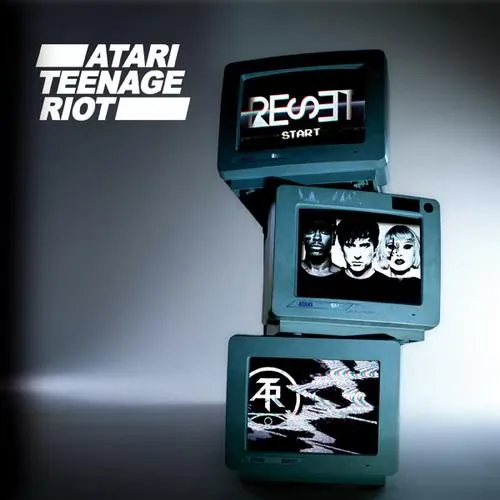
Atari Teenage Riot
Top Atari Teenage Riot albums
Top Atari Teenage Riot lyrics
Atari Teenage Riot biography
Berlin hardcore dissenters Atari Teenage Riot were among a new generation of German techno artists (also including ATR's Alec Empire, EC80R, Speed Freak, DJ Bleed, etc.) who sought to reconnect music with political radicalism through ever more challenging, experimental hybrids, engaging everything from speed metal and acid to jungle and hardcore punk. Formed in 1992 by Empire, Hanin Elias, and Carl Crack, ATR's controversial first single, "Hunting for Nazis," was released by German techno stronghold Force Inc. that same year (Force Inc. owner Achim Szepanski is also known for his commitment to political radicalism). Subsequently the group released a string of singles and full-lengths, all of them instantly recognizable for their brash, noisy fusions of brittle, 200 bpm breaks, ma**ive guitar riffs, and a good deal of shouting. Similar in motivation to Detroit's Underground Resistance or industrial dance group Consolidated, ATR professed a concern with a general conservative shift in the Western political climate (particularly in Germany after the collapse of communism in Russia and Eastern Europe) and for the development of new, overtly political forms of youth culture by way of response.br /br /Somewhat surprisingly, the group's early singles landed them a recording deal with U.K. major Phonogram in 1993, through whom they released a number of singles before skipping out on their contract (the label reportedly wanted more straight-ahead, commercial techno from the group). Using their Phonogram advance for the full-length album they never delivered, ATR formed Digital Hardcore Recordings (DHR) in 1994, the imprint under which they released most of their subsequent material, including the full-lengths Delete Yourself and The Future of War, plus a number of singles and EPs. DHR also expanded to include a number of up-and-coming German artists -- including EC8OR and Shizuo -- with similar political leanings, and signed a domestic licensing deal with Beastie Boys' label Grand Royal in 1996. Partly as a result of that deal and partly through the increasing popularity of ATR member Alec Empire (who released a number of solo full-lengths and singles through Force Inc., Chrome, Mille Plateaux, and Riot Beats, as well as DHR), ATR became one of the first new-school European techno artists to achieve success in America, with alternative radio and MTV picking up on the group in late 1996 and the release early the following year of an American compilation collecting tracks from the first two albums. Their third album 60 Second Wipe Out appeared in 1999 on Elektra. After that record, the band went on hiatus to allow Crack to seek psychiatric treatment and deal with declining health caused by long-simmering addictions. Unfortunately the break was not enough and Crack was found dead in his Berlin apartment on September 6, 2001. The band dissolved soon after, with a live album appearing in 2002 along with a pair of posthumous compilations, Burn, Berlin, Burn and the rarities set Redefine the Enemy. ~ Sean Cooper, All Music Guide
